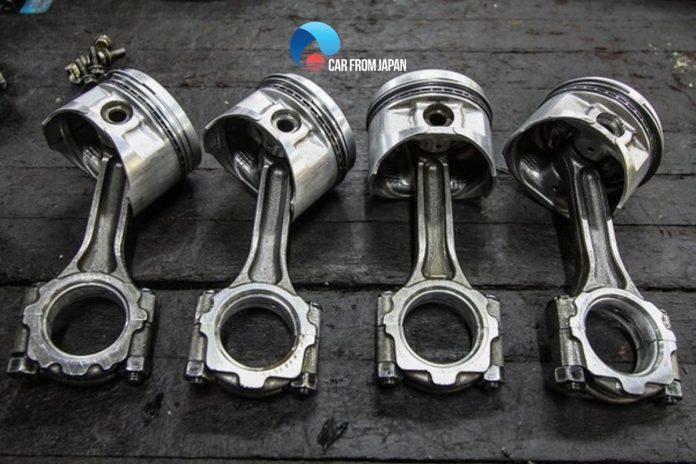This article will delve into several worth-to-notice bad piston ring symptoms, preventive measures and explore the process of replacing worn ones if the need arises.
As fulty piston rings can lead to a range of engine issues, such as reduced performance, heightened oil consumption, and diminished fuel efficiency!
Contents
Understanding Piston Rings Basics
Before we discuss symptoms of piston ring failure, it’s essential to grasp the role and location of piston rings.
Piston rings, often referred to as oil control rings, are small and cost-effective components situated deep within the engine. These rings are affixed to the pistons and play a crucial role in pressurizing the combustion cylinder.
The combustion cylinder is where the air-fuel mixture combines and ignites, generating the force that rotates the crankshaft through the resulting explosion.
This rotational motion facilitates the filling of other cylinders with the fuel-air mixture, igniting them in turn. This process generates the power required to drive the engine and propel the vehicle, along with any attached load.
Piston rings are central to this entire operation. They create a secure seal, allowing the cylinder to build pressure, thereby ensuring the engine’s efficiency.
Prolonged use or improper handling can lead to significant wear and tear on piston rings, jeopardizing engine performance over time.
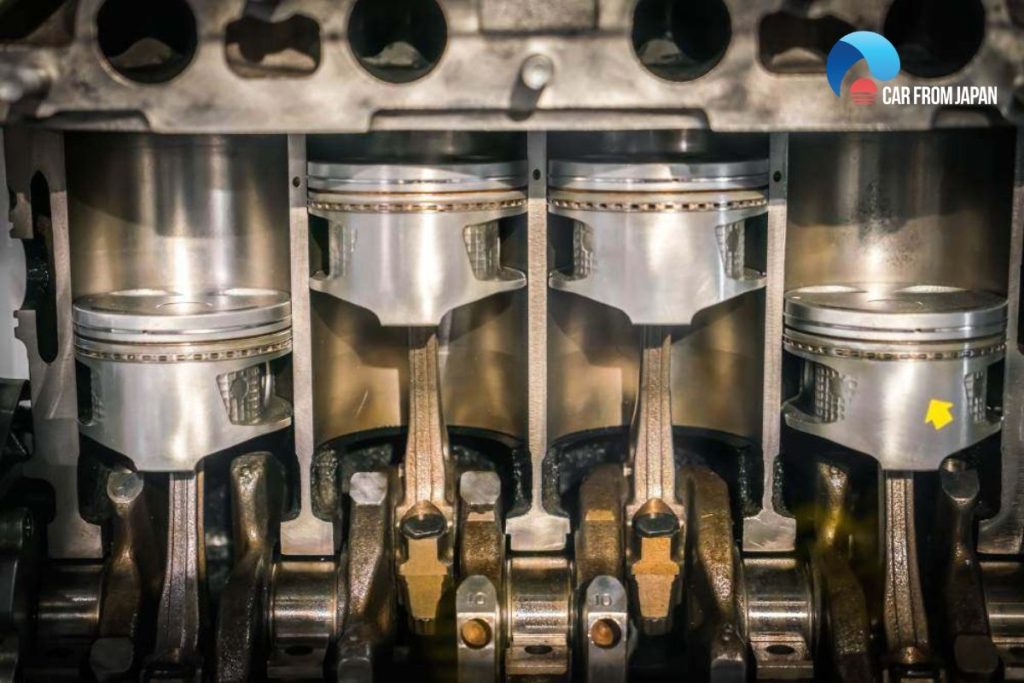
What Are The Bad Piston Ring Symptoms You Should Beware?
Excessive smoke from the exhaust
When piston rings deteriorate, they can create a pathway for engine oil to seep into the combustion chamber. This oil becomes an unintended participant in the combustion process, mixing with the fuel and air.
As a result, when the engine ignites this mixture, it produces an unusual and conspicuous byproduct: smoke. The color of this smoke, often blue or gray, is indicative of oil burning within the engine.
This symptom becomes especially noticeable when the engine is cold due to the increased likelihood of oil leakage when the piston rings are less pliable at lower temperatures.
Reduced engine performance
Piston rings are essential components for maintaining proper compression in the engine’s cylinders. When these rings degrade or sustain damage, they lose their ability to seal the combustion chamber effectively.
Consequently, the compression levels within the cylinders drop below the optimal range. Compression is integral for achieving efficient combustion, and when it diminishes, engine performance suffers.
Drivers may experience sluggish acceleration, a lack of responsiveness when pressing the accelerator pedal, and an overall decline in engine power.
This can be particularly noticeable during activities that demand higher engine output, such as accelerating rapidly or carrying heavy loads.
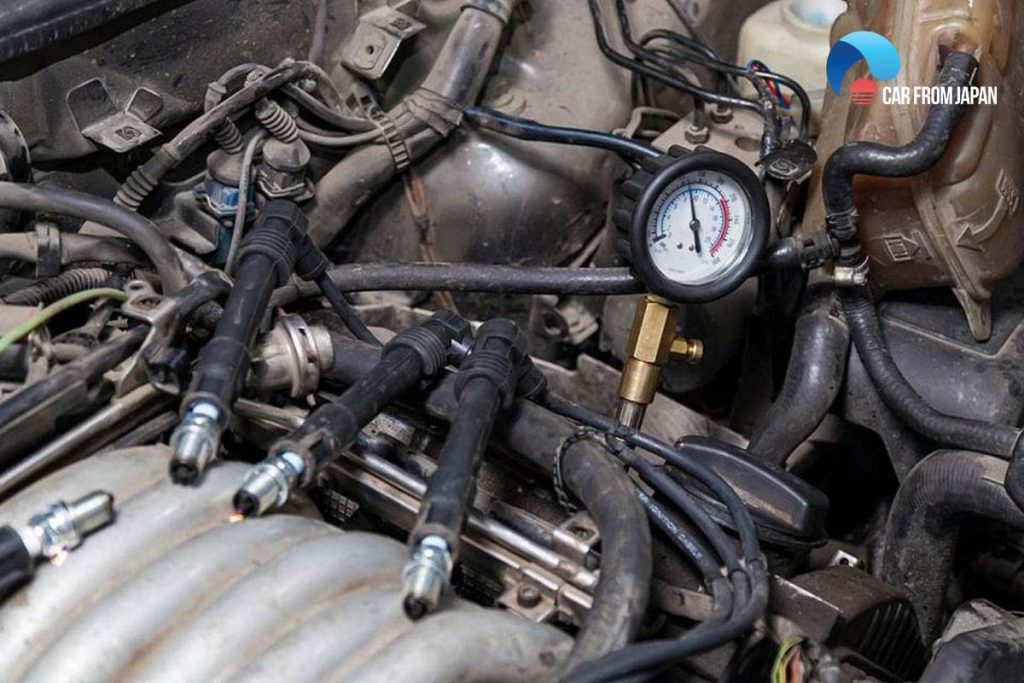
Increased oil consumption
Defective piston rings permit engine oil to escape from the crankcase and infiltrate the combustion chamber. This unwanted oil intrusion disrupts the engine’s usual oil consumption pattern.
As a result, you may find yourself replenishing the engine oil more frequently between scheduled oil changes. Monitoring the oil level via the dipstick will likely reveal a noticeable reduction in oil volume.
This increase in oil consumption is a direct consequence of the compromised sealing capabilities of the piston rings.
Knocking or pinging noises
The reduction in compression caused by damaged piston rings can lead to an irregular combustion process.
When the air-fuel mixture ignites at the wrong time due to incomplete compression, it can result in knocking or pinging noises emanating from the engine.
These sounds are akin to metallic tapping or rattling and are indicative of abnormal combustion events. They are often more pronounced when the engine is under load, such as during acceleration or when driving uphill.
Irregular combustion, a direct consequence of compromised compression, can harm the engine’s overall performance and longevity if not addressed promptly.
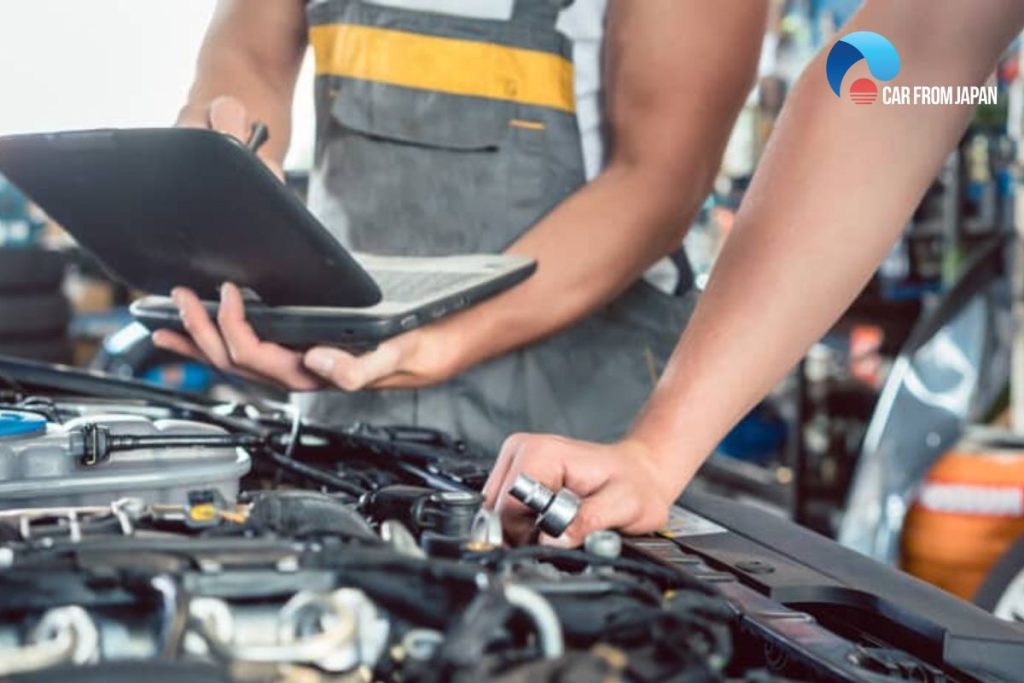
What Are The Possible Causes of These Bad Piston Ring Symptoms?
Wear and tear
Piston rings are subjected to constant friction and high temperatures generated during engine operation. Over time, this wear and heat can gradually erode the rings’ surfaces.
As the rings wear down, they lose their ability to create an effective seal against the cylinder walls.
This means that the gap between the rings and cylinder walls widens, allowing gasses to escape past the rings during the compression and combustion strokes.
This escape of gasses results in reduced engine efficiency and power, as well as increased oil consumption.
Cylinder scoring
Cylinder scoring refers to the presence of abrasions or scratches on the inner walls of the engine cylinders.
These abrasions can occur due to contaminants present in the engine oil, such as dirt or metallic particles, or as a result of inadequate lubrication.
When piston rings travel over these damaged areas, it exacerbates the problem. The damaged cylinder walls cause accelerated wear on the rings, leading to a compromised seal.
This diminished sealing performance further contributes to reduced compression, engine power, and increased oil consumption.
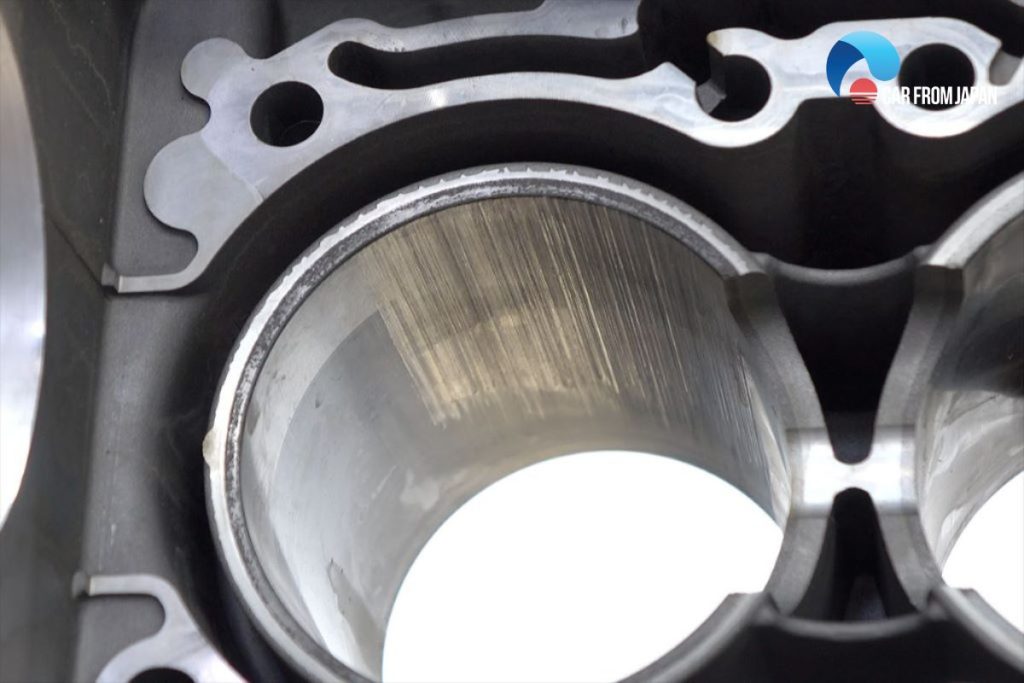
Overheating
Elevated engine temperatures can result in the distortion of piston rings. This occurs when the rings, which are typically made of metal, lose their intended shape and elasticity due to excessive heat exposure.
Various factors can lead to engine overheating, including a malfunctioning cooling system, continuous operation under heavy loads, or excessive engine overheating due to factors like insufficient coolant levels or a malfunctioning thermostat.
Distorted piston rings are less effective at maintaining a tight seal, which can lead to compression loss and poor engine performance.
Poor maintenance
Neglecting routine engine maintenance can significantly impact piston ring longevity.
When maintenance practices such as skipping or extending oil change intervals, using an inappropriate oil viscosity, or operating with low oil levels are observed, the consequences can be detrimental.
Insufficient or contaminated oil can increase friction between the rings and cylinder walls, accelerating wear. This leads to premature ring deterioration, compromised sealing, and a shorter service life.
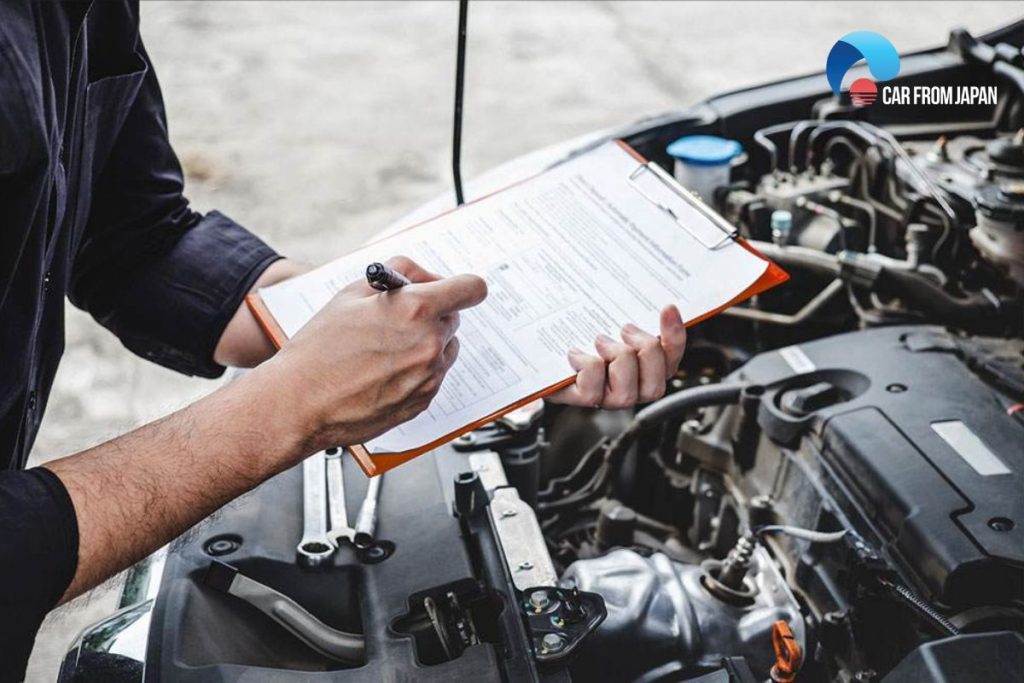
Detonation and pre-Ignition
Detonation and pre-ignition are abnormal combustion processes that generate high-pressure shockwaves within the combustion chamber.
These shockwaves can exert significant stress on the piston rings, potentially causing them to deform or lose their seal integrity. This results in compression loss, poor engine performance, and increased wear on the rings.
Incorrect installation
Incorrect installation of piston rings can have detrimental effects on their performance. If the rings are not positioned correctly, such as being oriented in the wrong direction or not properly seated in their grooves, they may fail to create an effective seal.
This misalignment can result in rapid wear and reduced sealing capability, leading to compression loss.
Excessive carbon deposits
Carbon deposits can accumulate on the piston rings over time, particularly when oil is not of high quality or when the engine operates under conditions that promote carbon buildup.
These deposits can cause the rings to become sticky or hinder their free movement within their grooves.
When piston rings do not move freely, they cannot effectively seal against the cylinder walls, contributing to compression loss and increased oil consumption.
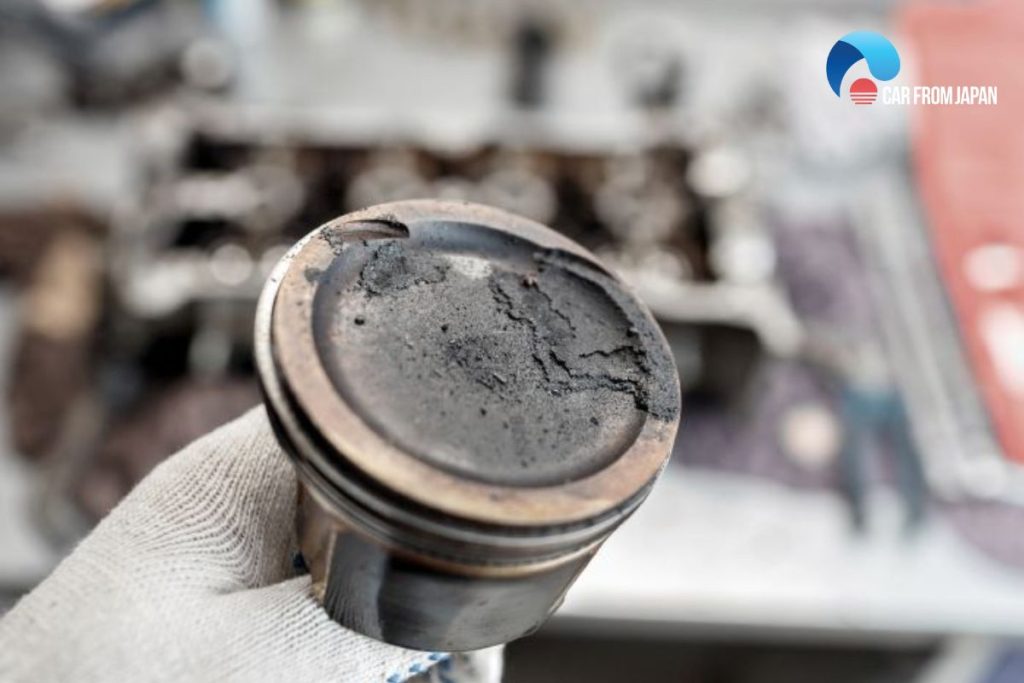
Solutions For Each Circuit of Bad Piston Rings
Excessive smoke from the exhaust
To reduce excessive smoke emissions, you should replace the worn or damaged piston rings. This typically involves an engine overhaul or rebuild, during which new piston rings are installed.
Reduced engine performance
Restoring engine power requires replacing the faulty piston rings. Moreover, check other engine components like spark plugs, air filters, and the fuel system for maintenance or replacement as needed to optimize performance.
Increased oil consumption
Ensure that the engine is properly maintained with regular oil changes using the manufacturer-recommended oil grade and viscosity.
Poor compression
To address poor compression, piston rings should be replaced. A thorough engine rebuild is often necessary to ensure the new rings function correctly.
Additionally, consider replacing other components like valves and valve seals.
Knocking or pinging noises
Fixing irregular combustion noises requires restoring proper compression. Replace the piston rings, and assess the condition of the cylinders.
How To Prevent The Bad Piston Ring Symptoms On Your Car?
Strict maintenance schedule
Adhering to a meticulous maintenance schedule is pivotal in preserving the integrity of piston rings and overall engine health.
Routine oil and filter changes
Regular oil and filter changes are fundamental for minimizing wear on piston rings. Engine oil serves as a lubricant for various engine components, including the rings.
Over time, oil degrades and accumulates contaminants, leading to increased friction and wear.
Changing the car oil and filter at recommended intervals, usually every 3,000 to 5,000 miles depending on the vehicle and oil type, ensures that the engine remains properly lubricated.
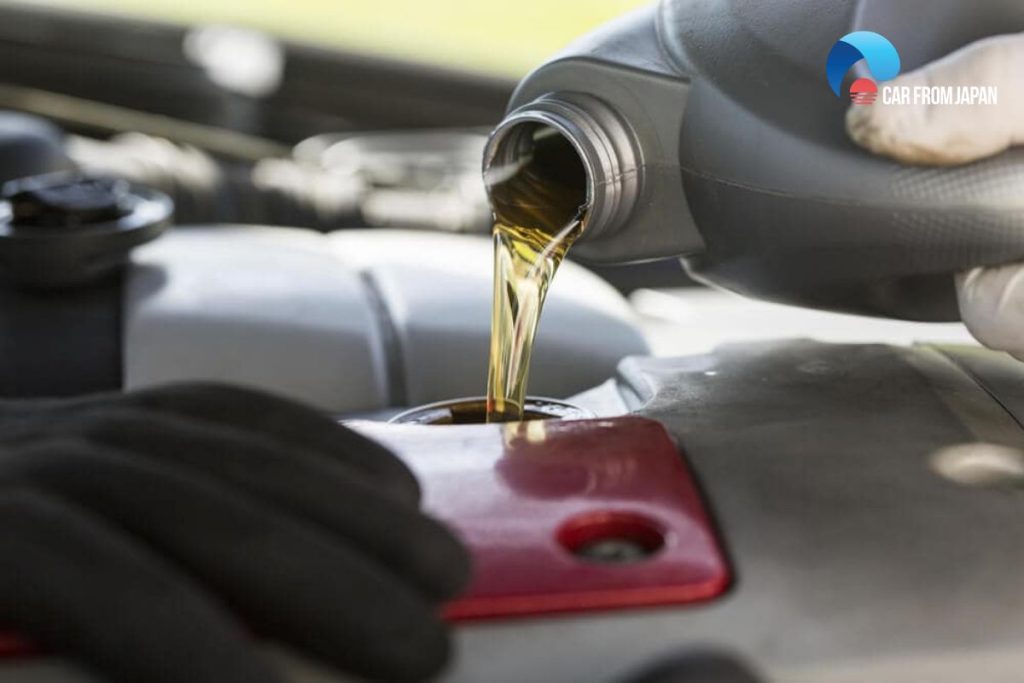
Use of manufacturer-recommended oil grade
It’s imperative to use the oil grade specified by the vehicle manufacturer. Different engines require specific oil viscosities and formulations to operate optimally.
Using the recommended oil grade helps maintain proper lubrication, preventing premature wear and damage to the piston rings.
Avoiding overheating
Malfunctions in components like the thermostat, radiator, or water pump can disrupt the engine’s cooling capacity.
Additionally, flush and replace coolant to prevent overheating and cylinder scoring, which can damage piston rings.
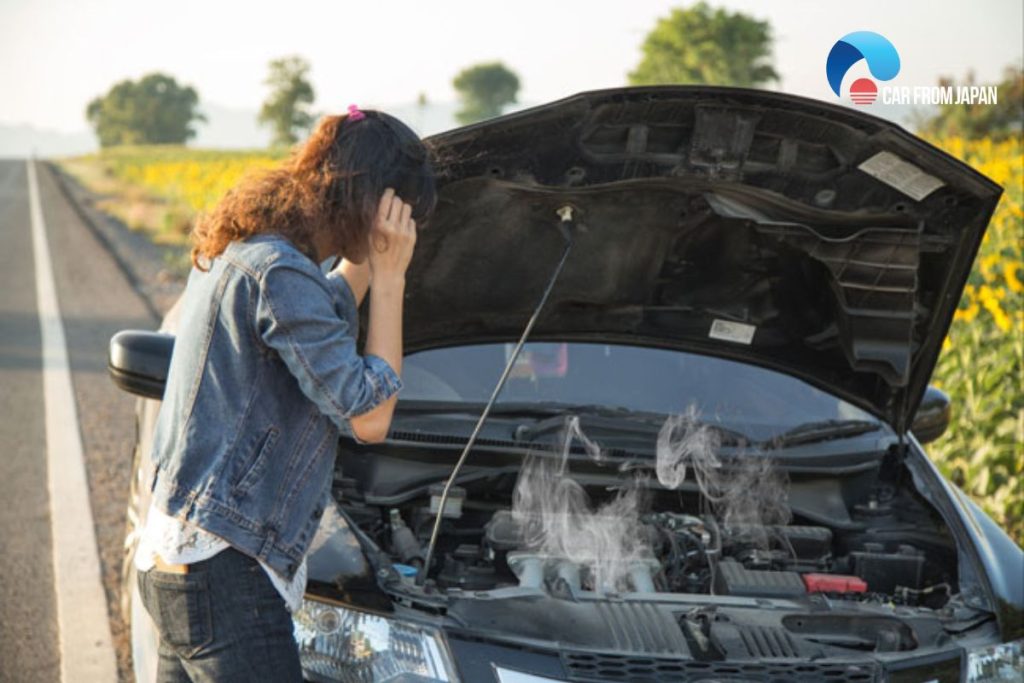
Timely repairs
Addressing engine performance issues promptly is crucial to prevent further harm to the piston rings:
- Fixing ignition problems: Misfires or a malfunctioning spark plug system may cause irregular combustion and increased stress on the rings.
- Addressing fuel system issues: Fuel system problems, such as clogged injectors or a failing fuel pump, can affect combustion efficiency.
- Resolving exhaust system malfunctions: Malfunctions in the exhaust system, including issues with the catalytic converter or oxygen sensors, can lead to abnormal combustion and potential piston ring stress.
Engine break-in
During an engine rebuild or piston ring replacement, follow manufacturer-recommended break-in procedures. This typically involves gradually increasing engine load and avoiding high RPMs during the initial break-in period.
These procedures allow the new rings to seat correctly and form a proper seal against the cylinder walls, ensuring optimal performance and longevity.
Check out this video from car PROblems for more information on signs of failing or worn piston rings!
Final Words
In the end, proper maintenance and prompt attention to engine issues can help prevent future bad piston ring symptoms and ensure the longevity of your engine.
For more car maintenance tips, follow Car From Japan today!

